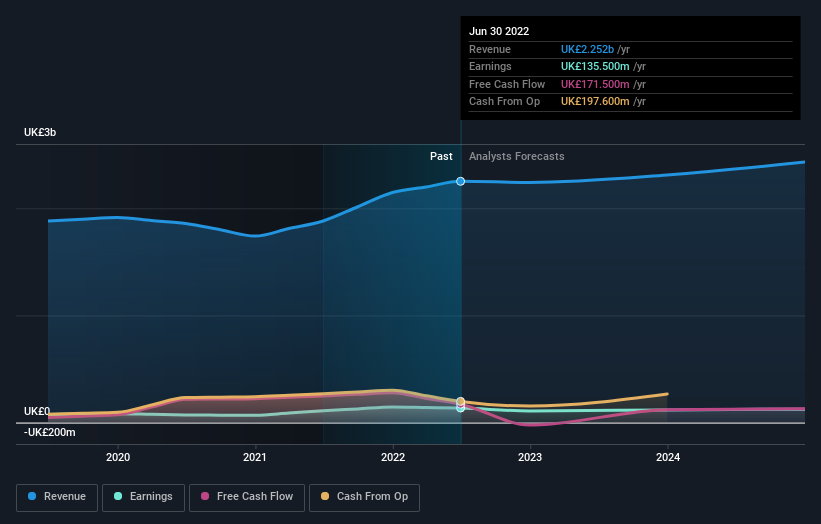When Should You Buy Savills plc (LON:SVS)?
Savills plc (LON:SVS), is not the largest company out there, but it saw significant share price movement during recent months on the LSE, rising to highs of UK£11.90 and falling to the lows of UK£7.64. Some share price movements can give investors a better opportunity to enter into the stock, and potentially buy at a lower price. A question to answer is whether Savills' current trading price of UK£8.00 reflective of the actual value of the small-cap? Or is it currently undervalued, providing us with the opportunity to buy? Let’s take a look at Savills’s outlook and value based on the most recent financial data to see if there are any catalysts for a price change.
See our latest analysis for Savills
What Is Savills Worth?
According to my price multiple model, which makes a comparison between the company's price-to-earnings ratio and the industry average, the stock price seems to be justfied. I’ve used the price-to-earnings ratio in this instance because there’s not enough visibility to forecast its cash flows. The stock’s ratio of 8.16x is currently trading slightly above its industry peers’ ratio of 7.54x, which means if you buy Savills today, you’d be paying a relatively reasonable price for it. And if you believe Savills should be trading in this range, then there isn’t really any room for the share price grow beyond the levels of other industry peers over the long-term. So, is there another chance to buy low in the future? Given that Savills’s share is fairly volatile (i.e. its price movements are magnified relative to the rest of the market) this could mean the price can sink lower, giving us an opportunity to buy later on. This is based on its high beta, which is a good indicator for share price volatility.
What kind of growth will Savills generate?
Future outlook is an important aspect when you’re looking at buying a stock, especially if you are an investor looking for growth in your portfolio. Although value investors would argue that it’s the intrinsic value relative to the price that matter the most, a more compelling investment thesis would be high growth potential at a cheap price. Though in the case of Savills, it is expected to deliver a negative earnings growth of -10%, which doesn’t help build up its investment thesis. It appears that risk of future uncertainty is high, at least in the near term.
What This Means For You
Are you a shareholder? Currently, SVS appears to be trading around industry price multiples, but given the uncertainty from negative returns in the future, this could be the right time to reduce the risk in your portfolio. Is your current exposure to the stock optimal for your total portfolio? And is the opportunity cost of holding a negative-outlook stock too high? Before you make a decision on SVS, take a look at whether its fundamentals have changed.
Are you a potential investor? If you’ve been keeping an eye on SVS for a while, now may not be the most optimal time to buy, given it is trading around industry price multiples. This means there’s less benefit from mispricing. Furthermore, the negative growth outlook increases the risk of holding the stock. However, there are also other important factors we haven’t considered today, which can help gel your views on SVS should the price fluctuate below the industry PE ratio.
With this in mind, we wouldn't consider investing in a stock unless we had a thorough understanding of the risks. You'd be interested to know, that we found 1 warning sign for Savills and you'll want to know about it.
If you are no longer interested in Savills, you can use our free platform to see our list of over 50 other stocks with a high growth potential.
Have feedback on this article? Concerned about the content? Get in touch with us directly. Alternatively, email editorial-team (at) simplywallst.com.
This article by Simply Wall St is general in nature. We provide commentary based on historical data and analyst forecasts only using an unbiased methodology and our articles are not intended to be financial advice. It does not constitute a recommendation to buy or sell any stock, and does not take account of your objectives, or your financial situation. We aim to bring you long-term focused analysis driven by fundamental data. Note that our analysis may not factor in the latest price-sensitive company announcements or qualitative material. Simply Wall St has no position in any stocks mentioned.
Join A Paid User Research Session
You’ll receive a US$30 Amazon Gift card for 1 hour of your time while helping us build better investing tools for the individual investors like yourself. Sign up here

